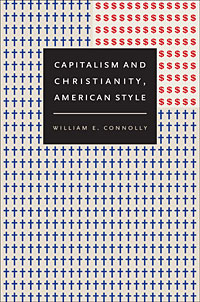In the near future, we will kill by automation.
By Tazim R. Kassam
In this case, the “covering up” is the absence of reference to Islam/Muslims. The silence is a form of erasure of their experience in the historical narrative post-9/11. Both are processes that hide Islam, in one case through distortion in the other disinterest.
How can creativity, with its wild, aimless fecundity, not overwhelm us, turning us into mere occasions for, or perhaps ciphers of, a cosmic Process which rolls on eternally, producing no true events but only simulacra of itself?
We are in an economic crisis, but we are also in an identity crisis. Who are we? What do we, as a nation, stand for?
Perhaps I am mistaken, but it sure seems that President Obama began his much anticipated jobs speech with a little political theology. In classic civic fashion he could have referred to an economic crisis that has left “millions of Americans jobless,” or “millions of our fellow citizens jobless.” Instead, he referred to an economic crisis that has left “millions of our neighbors jobless.”
The attacks of September 11, 2001 on the World Trade Centers and Pentagon threw the debates over the definition of “religion” into a stir. Though religion was obviously a central factor in the events of 9/11, overly phenomenological and essentialist construals of religion were suddenly and starkly at a loss in making sense of how and why.
We are now on facebook.
Political Theology 12.5 (2011) is a special issue entitled ‘Ten Years After 9/11’, in which twenty-two contributors from across the religious spectrum take stock of the events of September 11, 2001 and their aftermath. Perspectives are offered from theologians, specialists in the study of religion, historians, philosophers, ethicists, anthropologists and political scientists. A number of the contributors are active in the area of interreligious dialogue and interfaith relations. Some are grassroots activists.
The American theologian H. Richard Niebuhr began his prescient, perhaps timeless, essay on the Sino-Japanese War – “It may be that the greatest moral problems of the individual or of a society arise when there is nothing to be done.” In the face of a colonial conflict in Asia, and calls for U.S. intervention, Niebuhr urged an active inactivity.

